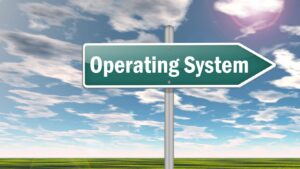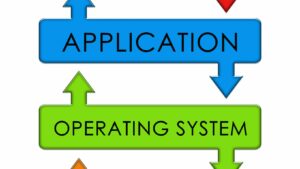In the ever-evolving world of technology, understanding operating systems is more crucial than ever. These complex, yet fascinating systems act as the backbone of our digital devices, orchestrating the harmony between hardware and software.
So, let’s embark on this exciting journey, exploring the best textbooks that unravel the mysteries of operating systems.
Operating Systems Textbooks
The Role of Textbooks in Learning Operating Systems
 A textbook explains, offers insightful case studies and provides an in-depth look into operating systems text books. They typically describe the theoretical, applied, and historical dimensions of this essential digital device component. With their rigorous and comprehensive approach, textbooks on operating systems help students grasp the fundamentals and delve deeper into this intricate subject.
A textbook explains, offers insightful case studies and provides an in-depth look into operating systems text books. They typically describe the theoretical, applied, and historical dimensions of this essential digital device component. With their rigorous and comprehensive approach, textbooks on operating systems help students grasp the fundamentals and delve deeper into this intricate subject.
Selecting the right textbook depends primarily on the reader’s academic level and specific goals. Both students and professionals must align their choices with their learning objectives and comfort levels with the material’s complexity. For beginners, textbooks that use simple language and offer ample examples of operating systems text books real-life applications are ideal. On the other hand, advanced learners may prefer books that delve into the intricacies and nuances of system architecture.
Features to Look for in an Operating Systems Textbook
Engaging in operating systems text books topics mandates a textbook that fits the reader’s unique needs. In the pursuit of the perfect textbook, one must consider the following aspects: comprehensive topic coverage, clarity and approachability of content, and included resources and exercises.
Comprehensive Coverage of Topics
A highly valuable textbook provides a broad spectrum of operating systems text books topics. Everything from scheduling algorithms to memory management needs detail. It focuses on both foundational and advanced concepts.
Clarity and Approachability of Content
Operating systems concepts, while intriguing, can also be complex. Thus, the textbook’s language plays a decisive role. A textbook, such as “Modern Operating Systems”, presents the intricate aspects of operating systems in a digestible format, making it ideal for beginners.
Included Resources and Exercises
Apart from comprehension, a reader needs opportunities for application. To this end, textbooks must feature exercises that encourage active engagement with the material. “Operating Systems: Internals and Design Principles” includes various problem-solving activities, simulations, and case studies.
Supplementing Textbooks with Other Learning Resources
Books on operating systems are valuable. Yet, they are one part of the resources available for people seeking detailed understanding. Diversification of resources ensures a deep and well-rounded grasp of concepts. Notably, online courses, tutorials, communities, and forums feature prominently as alternative learning platforms.
Online Courses and Tutorials
Online courses and tutorials provide unique opportunities for learning. They introduce varying perspectives, enriching the knowledge gathered from textbooks. These resources boast interactive elements for a hands-on learning experience. Learning platforms like Coursera and Udemy offer courses dedicated to operating systems, both free and paid. Also, Khan Academy gives an in-depth tutorial on operating systems for free. Accompanied with visual explanations and practical exercises, it’s like having a virtual trainer.
Communities and Forums for Discussion
 Communities and forums cater to the interactive facet of learning, often missed in standalone textbooks. They enrich the learning process through knowledge sharing among peers worldwide. They provide an avenue to discuss concepts, clarify doubts, and brainstorm ideas.
Communities and forums cater to the interactive facet of learning, often missed in standalone textbooks. They enrich the learning process through knowledge sharing among peers worldwide. They provide an avenue to discuss concepts, clarify doubts, and brainstorm ideas.
A popular platform, StackOverflow, encourages open discussions on varied technical topics, including operating systems text books. Similarly, the subreddit r/OperatingSystems on Reddit offers an engaging community that actively discusses topics related to operating systems text books.
Must Know
Understanding operating systems text books remains vital. They offer clarity and relevance, with key features like comprehensive coverage and practical exercises. The shift towards digital, interactive content enriches learning, giving learners access to multimedia elements and digital tools. Classic and modern textbooks each have their strengths, providing a well-rounded knowledge base. Supplementing textbook learning with online resources enhances understanding. Platforms like Coursera, Udemy, Khan Academy, and YouTube offer interactive experiences and diverse viewpoints. Communities such as StackOverflow and Reddit serve as knowledge-sharing platforms, keeping learners updated on operating system trends.

